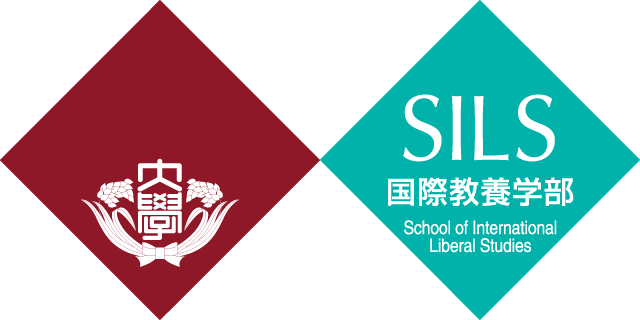- News
- 【Message from Graduates】INADA, Yuuki : Life at London School of Economics and Political Science - Academic Path after SILS
【Message from Graduates】INADA, Yuuki : Life at London School of Economics and Political Science – Academic Path after SILS
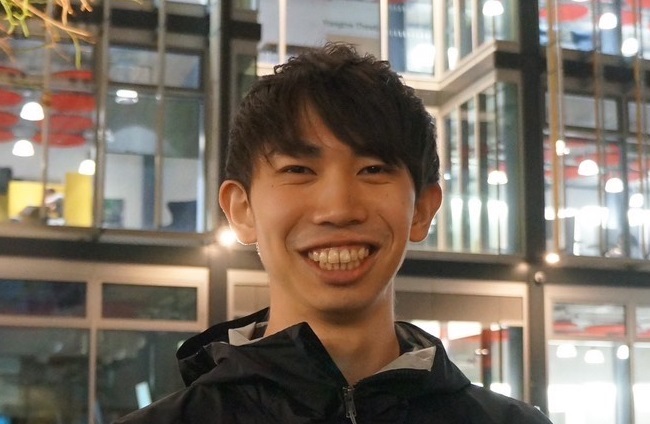
- Posted
- Tue, 21 Feb 2023
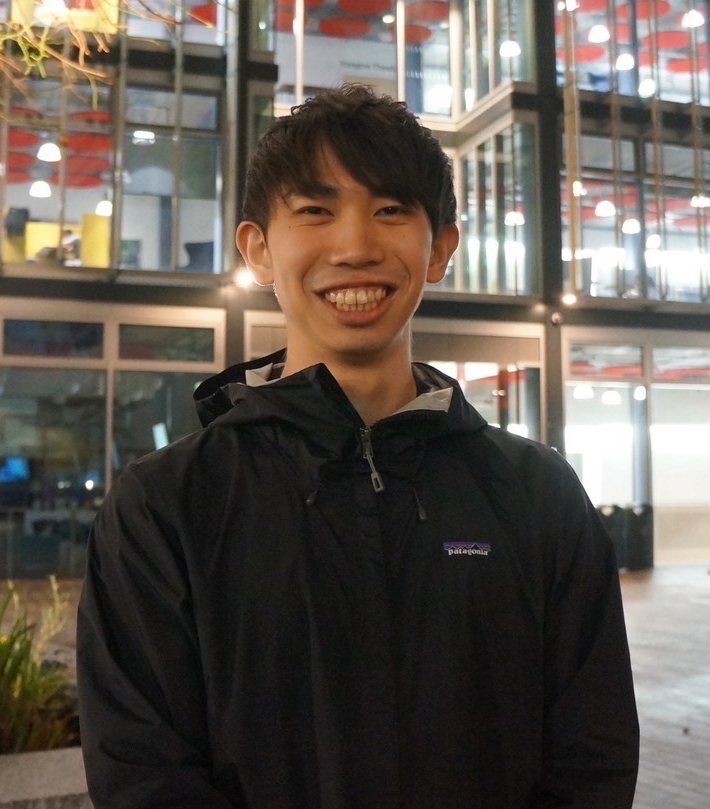 Kogyokusha High School (Graduated in March 2018)
Kogyokusha High School (Graduated in March 2018)- School of International Liberal Studies, Waseda University (Graduated in March 2022)
- Study Abroad: Uppsala University, Sweden (August 2019 – June 2020)
- MSc Applied Social Data Science program, London School of Economics and Political Science (Entered in September 2022)
― Could you tell us about your life at the graduate school?
The MSc Applied Social Data Science program at London School of Economics and Political Science (LSE) is an interdisciplinary program of studying and applying appropriate data science methodologies to the field of social studies. Some people research about “misinformation” through Natural Language Processing (NLP) techniques, and Professor Ken Benoit at LSE is the father of a famous NLP package in R.
Unlike Japanese graduate school students, who are solely focused on research, students in this program have the flexibility to either choose from “Research” or “Taught” classes. I am currently enrolled in the “Taught” class, and plan to take classes of my interest before writing my thesis during the summer. I am mainly interested in mobility data, and as an extension of my undergraduate thesis I plan to analyze the patterns in human mobility, in order to solve wider social issues.
One particular interest is the analysis of consumer consumption patterns prior to and after government mandated COVID-19 lockdowns. Utilizing the open network across departments and flexible open hours at LSE, I am planning to connect with professors not just in my program, but also with professors from other academic disciplines, such as in Political Science and Statistics. This allows me to understand various schools of thoughts, and ideas that would help me write my thesis. The horizontal and open-minded environment allows me to freely discuss my ideas with professors, allowing for deep and thought-provoking discussions.
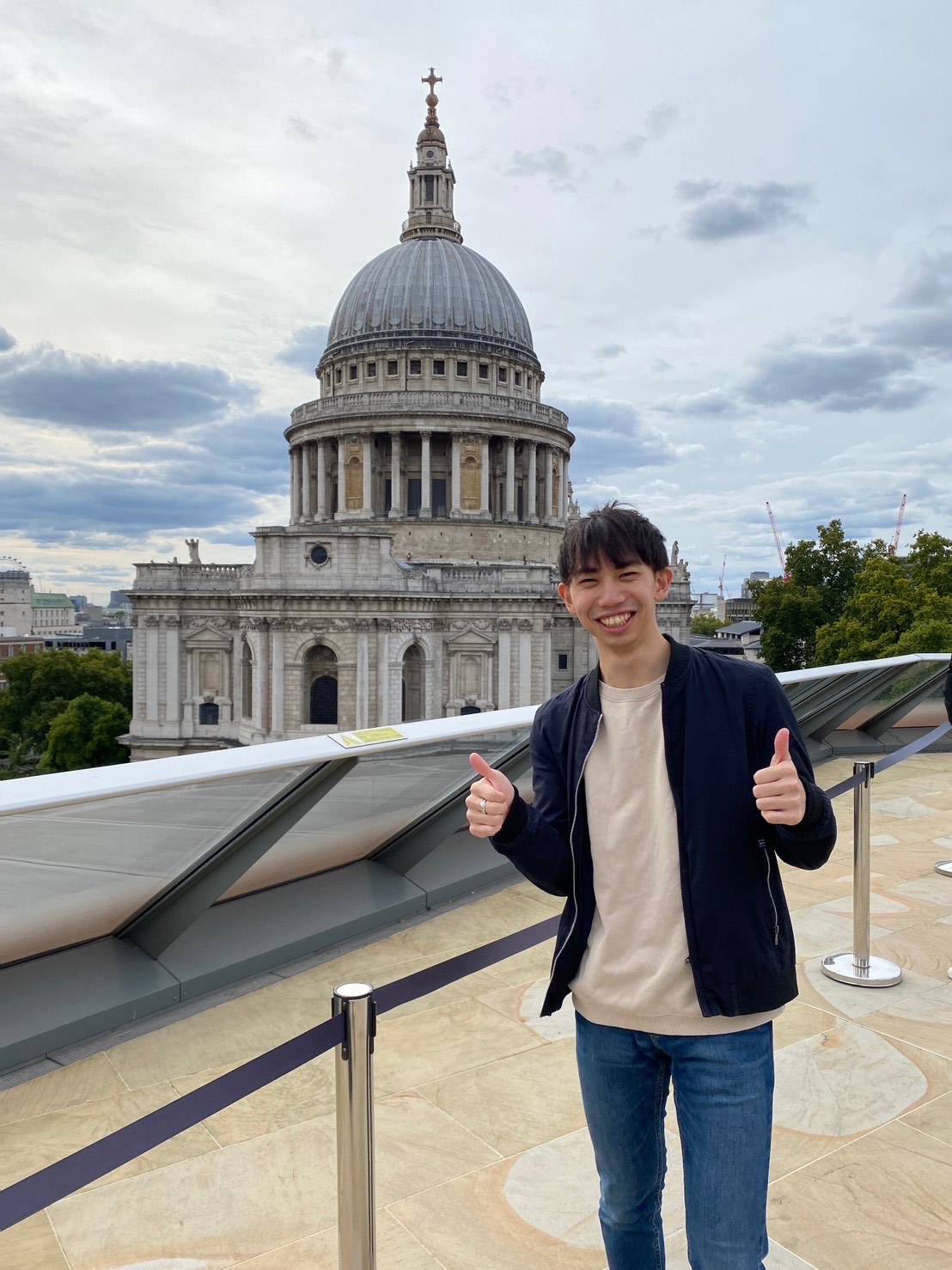
Photo taken in front of Saint Paul’s Cathedral
― How did you decide your current academic path?
There are three main reasons for my application to MSc Applied Social Data Science. Broadly speaking, the first reason was to extend my undergraduate studies, the second reason was to work abroad, and the third reason was to take up an opportunity not available in Japan.
Firstly, during my times at SILS, I was studying statistics, data science and machine learning. I wanted to, not only learn about the theoretical aspects, but also apply these concepts in order to solve issues and develop an advanced skill in the field of data science.
Secondly, I aspire to have work experience abroad that would allow me to directly utilize his data science problem solving skills. The UK is known for their heavy investment into data architecture and in providing an entourage of public data, which is the perfect environment for me to become a data scientist. Furthermore, my goal is to gain an advanced skill as a data scientist and the one-year program, in addition to the two years of work visa, is the perfect chance for me to immediately apply my skills in the workplace.
Lastly, there are various data-science related programs in the UK. Often Japanese graduate schools have general data science classes per department, but in the UK, there are specialized interdisciplinary data science programs, such as “Applied Social Data Science”, “Data Science”, “Health Data Science” and “Geographic Data Science” that provide greater depth of understanding in data science, plus knowledge in an academic subfield.
― How are the classes at LSE?
In the first and second semester, most of my classes are project oriented, which is an approach that fits with me. In particular, some of the classes use programming to learn about Artificial Intelligence, Bayesian Machine Learning, Statistical Inferences and Data Science. These classes allow me to learn about best-practice methods, and to develop a strong foundational base for my master thesis. Moreover, the classes are structured separately into “lectures” and “seminars”, where students first learn about the class content during the lecture and then have the opportunity to apply the learned content in group exercises.
For this semester I am taking three classes and come to university six times a week. Whereas in SILS students are encouraged to take numerous classes from different concentrations, the intensive master program at LSE allows me to concentrate and accelerate in my academic interest.
― How is it like to study at LSE?
The international student body at LSE is very diverse with students coming from Europe, United States, Mexico, China, and South Korea. In particular my program is not just composed of students from diverse ethnicities, but also of students from various undergraduate programs, such as in econometrics and phonetics, and work experience. Through the common academic interest in data science, students in my program work together and support each other’s goals.
Graduate students at LSE share a strong passion for academia, yet everyone is welcoming to share their own research and to collaborate with one another. LSE provides these places of collaboration and study environments in the lounges found across the campus.
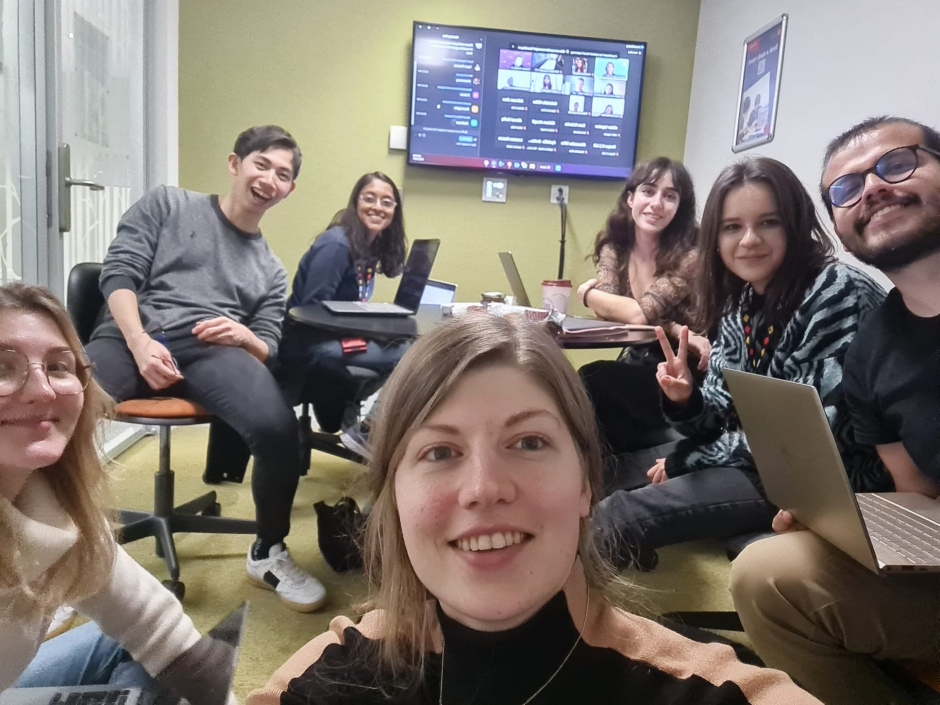
Participated in a Data Science Hackathon with Classmates
― Do you think Waseda’s brand name is internationally recognized?
Amongst the diverse international student body at LSE, Waseda is well known amongst Chinese and South Korean students. Even amongst professors who conduct research, Waseda is also known.
― How did learning at SILS influence your current academic path?
The wide array of classes at SILS gave me the opportunity to explore various subjects and to find a subject that suits my interest. In my first and second year I mainly took classes in economics and enjoyed the quantitative approaches. In my third and fourth year I started to take subjects, such as programming, physics and statistics, in the “Life, Mathematics and Information” cluster. In Advanced Seminar, I specialized in machine learning and worked along with likeminded peers who had an interest in data science. Graduating from SILS, I wanted a more specialized skill and hence applied for graduate school. I believe that SILS’s strength is in the wide array of classes, from ethics to artificial intelligence, that would meet any student’s academic interests.
― Could you also tell us how you prepared your application to a master’s in science program while joining a liberal arts program at SILS?
While the application requirements may vary amongst specific data science graduate programs, I recommend SILS students who are interested in applying to a similar program to learn and practice Python programming. For the “Applied Social Data Science” it is also important to have the interest and skill in applying theoretical data science concepts into programming, and to produce an output that would aid in social changes. A skill that is heavily demanded in the job market. Furthermore, I believe that the domain of data science is in between the humanities and sciences, and SILS has provided the necessary classes to have knowledge in both academic disciplines.
― Any message to our prospective applicants?
As a high school student, I struggled to find a subject that suited my academic interest, but at SILS, everyone has the opportunity to take up classes of any academic subject and eventually find their future goal. I recommend everyone to take up classes from multiple academic clusters and to not be afraid to pursue any academic interest, even if that interest may initially be miniscule.
SILS provides a cost-effective method, to expose oneself to various subjects taught at a global standard by supportive and internationally minded professors. While other departments in Waseda do provide a more traditional approach to specialize in an academic area, at SILS, students have the option to learn a wide array of subjects and to combine these domains together to create an avant garde innovation and solution. For instance, using quantitative methodologies in the domain of political science to find common patterns among social problems. Do challenge yourself to take up the vast opportunities at SILS and to one day use the knowledge from SILS to lead social changes in Japan. If you want to pursue your own academic interest at an internationally recognized level and expand your point of view through interactions amongst the diverse student body, then SILS is the right place for you.
This content is as of the time of issuance.
